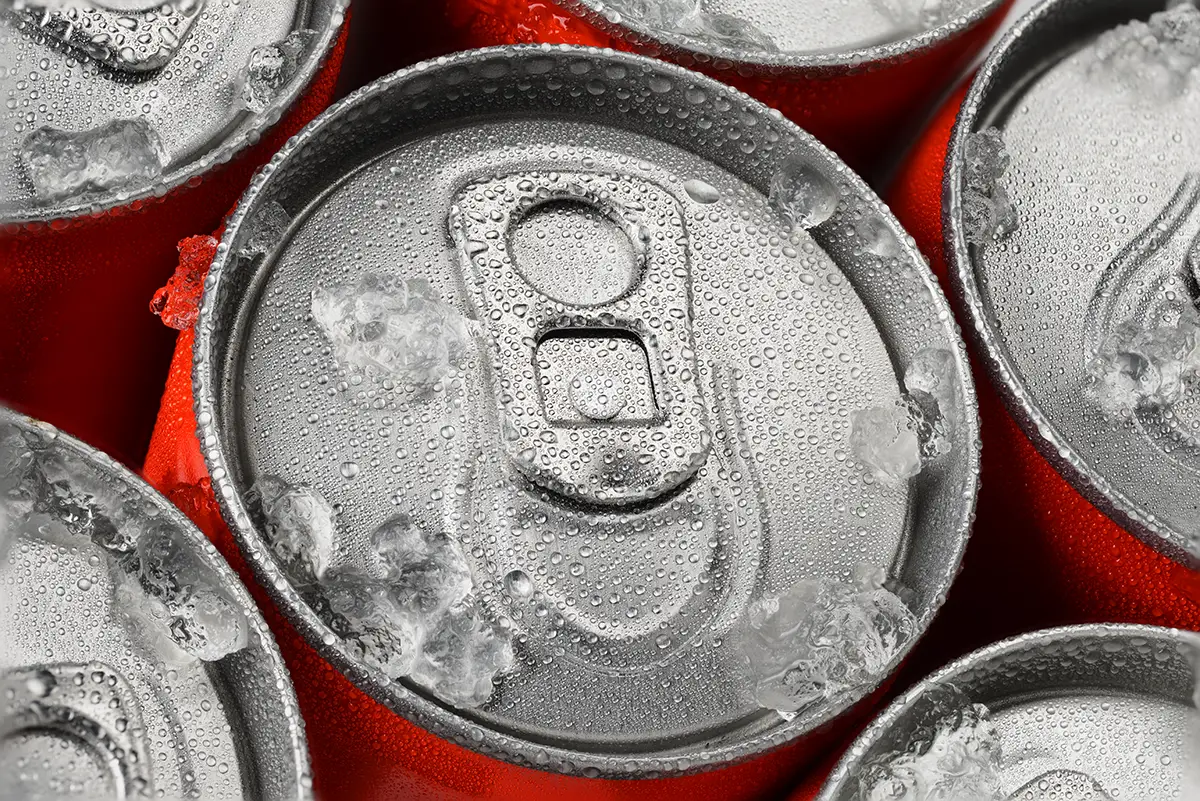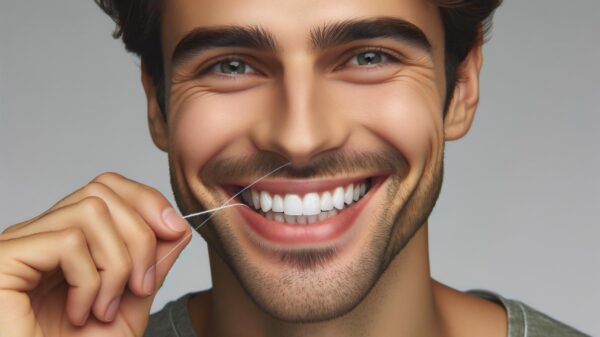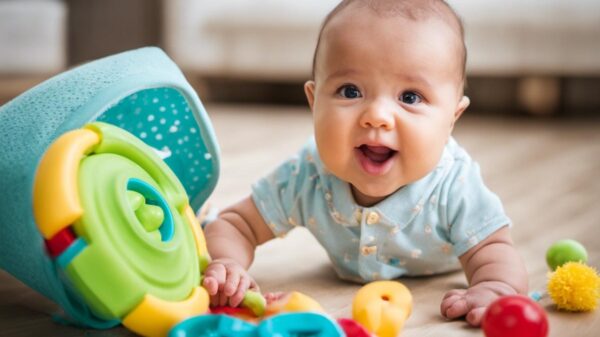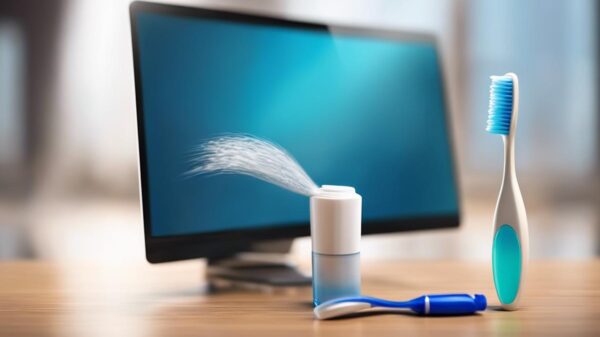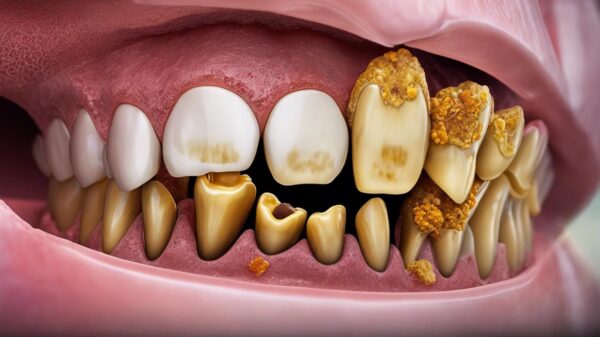Is Soda Bad For Your Teeth After a Dental Cleaning?
We all know soda is not recommended for those who wish to have white teeth, as soda can become a big factor in the teeth staining process. Usually, after getting your teeth cleaned by a dental hygienist or dentist, soda is generally avoided. After researching and asking my local dentist, I was able to come to confirm if it was safe to drink after a teeth cleaning.
So, can you drink soda after teeth cleaning? The answer is no, it is not recommended to drink any soda, especially dark in color due to its potential staining capabilities. Your teeth are exposed after a teeth cleaning and soda can easily become a big part of the teeth staining process.
Although soda can create stains on your teeth after a few months of drinking it regularly, it’s important to note that the sugary soda drinks are also acidic and can erode the tooth enamel, which can result in tooth decay. Be sure to keep reading and follow our tips for proper tooth care after an oral cleaning!
Why Is Soda Not Okay to Drink After a Teeth Cleaning?
After you have gone to the dentist for a teeth cleaning, soda can be an enemy. It contains high amounts of sugar, which is acidic. The carbon dioxide bubbles that soda consists of can cause wear and tear on your tooth enamel.
When soda is exposed to teeth enamel for prolonged periods, soda can also very easily cause cavities by eroding the protective layer that exists around the teeth.
Additionally, soda contains phosphoric acid which will increase your risk of developing dental erosion if you drink soda often enough. Dental erosion is caused by stomach or dietary acids moving up into the mouth via saliva swallowing after eating or drinking anything acidic like soda pop.
This causes loss of tooth structure because it reduces mineral content leaving behind mostly collagen, which is a protein.
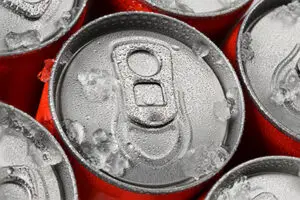 What Are the Long-Term Effects of Drinking Soda?
What Are the Long-Term Effects of Drinking Soda?
Drinking soda after a teeth cleaning can have long-term effects including enamel erosion, tooth decay, cavities, and dental erosion.
Drinking soda also impacts your teeth by staining them over time because it contains dark dyes that are made to mimic natural foods like grapes or berries.
Soda can cause teeth stains to set in faster than drinking other beverages because soda is acidic. After soda fizzes down into the crevices of your teeth and creates surfaces for bacteria to stick to!
This then leads to plaque and tartar build-up and dental problems if it’s consumed consistently. So we’ve established soda is bad for our teeth after a cleaning – but what should we drink instead? Stick to soda alternatives like water!
The next time you’re reaching for soda, try drinking flavored water instead. It has the same satisfying fizziness without tasting like soda.
Water isn’t just great at helping us maintain healthy teeth after a dental cleaning – it also helps fight fatigue, hunger, and dehydration with no calories or sugar added!
What Other Drinks Should be Avoided After a Dental Cleaning?
Dental cleaning may be a frustrating experience. However, it is essential to ensure your dental health does not take a turn for the worse. In addition to brushing and flossing regularly, here are some drinks that should be avoided after dental cleanings:
Alcoholic Beverages
Alcoholic beverages can irritate your teeth even more by causing them to become dry and potentially decreasing saliva production. Additionally, the acidity of alcohol can cause dental erosion which leads to tooth decay.
Furthermore, alcoholic beverages can decrease oxygen supply to the dental pulp resulting in an increased risk of infection within the tissues lining your tooth roots. Finally, you might also suffer from a rebound effect after drinking alcohol where your body craves sugar which will further harm dental health.
Milk
Milk can cause dental caries, dental erosions, and dental root abscesses.
This is because milk has an increased concentration of lactose that provides food for cavity-causing bacteria; high amounts of phosphate which dissolves tooth minerals; and casein proteins that adhere to the tooth surface, making it difficult for saliva to wash away sugars like milk can leave behind after drinking it.
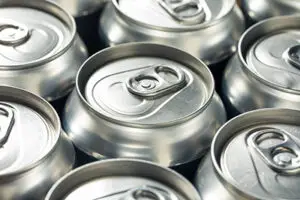 Ice Cold Drinks
Ice Cold Drinks
Ice-cold drinks are especially harmful to dental health due to the temperature change causing stress on your teeth. The temperature change increases blood flow in your gums which stimulates dental nerves leading to pain during eating or drinking hot/cold items.
Furthermore, when you drink ice cold beverages you may not be able to feel pressure brought on your teeth from the cold drink which causes dental erosion.
When you have dental problems, it may be a good idea to drink more water. Water can help protect your dental health by washing away excess sugar and acid that dental cavities need to form.
In addition, it stimulates saliva production which contains compounds that inhibit cavity-causing bacteria from growing. Furthermore, water flushes dental toxins from your body through urine and colon activity.
Are You Allowed to Eat After a Dental Cleaning?
After dental cleanings, it is possible to eat certain foods that are not chewy or sticky. However, you should avoid hard or crunchy foods that can damage dental work including crowns, bridges, implants, fillings, and tooth-colored resin restorations.
In addition to the dental health reasons for avoiding these types of foods after a dental cleaning, there could also be pain associated with their consumption as well!
While you may be allowed to eat after your dental cleaning depending on how much dental work you have done, it is still important to brush and floss regularly even if hard foods cannot be consumed.
If you do not take care of them properly then bacteria from food could remain in your mouth increasing the likelihood of future dental problems!
Can You Eat Food After a Flouride Treatment?
You should follow your dentist’s instructions after a fluoride treatment. It is not recommended to eat anything until allowed by your dentist.
Whether you had fluoride treatment with sodium fluoride, stannous fluoride, or sodium hexafluorosilicate; it is important to avoid eating or drinking for at least 30 minutes after application of the product.
This will ensure that the fluoride rinse has time to work and not be diluted by other substances in your mouth.
Recommended foods to eat include toast, flour tortillas, bananas, canned fruit without syrup or juice, cooked rice, or pasta that has cooled off.
Other foods you should avoid eating after your fluoride treatment include seeds of fruits and vegetables; coarsely ground flour products like pretzels, bagels, cornflour chips; poppy seed muffins.
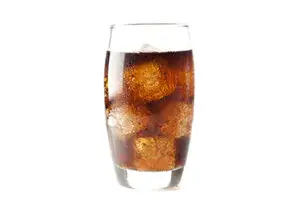 How Can You Protect Your Teeth After a Fluoride Treatment?
How Can You Protect Your Teeth After a Fluoride Treatment?
You should immediately brush and floss your teeth after fluoride treatment to protect them from cavities. Brushing and flossing will remove any leftover fluoride particles in your mouth, which would otherwise contribute to tooth decay.
In addition, you should avoid eating or drinking hot/cold items that could cause pain when using dental work such as crowns, bridges, implants, and tooth-colored resin restorations.
Brushing Your Teeth After a Flouride Treatment
You should not brush your teeth after a fluoride treatment. Fluoride is considered one of the safest and most effective preventive dentistry treatments available. It can help prevent tooth decay and promote healthy gums, safely and conveniently for patients.
The fluoride treatment makes your gums more sensitive. You should brush your teeth an hour or two after the fluoride treatment, but you shouldn’t rinse with water for at least 30 minutes.
If you still feel like your gums are sensitive after brushing, don’t use fluoridated toothpaste right away. Instead, try using fluoride-free toothpaste that doesn’t irritate your gums.
If fluoride treatments are part of your regular oral hygiene plan, you may need to brush your teeth again after the fluoride treatment as fluoride doesn’t stay in your mouth very long.
After fluoride has been applied, all surfaces should be brushed with a soft brush and no harder than medium pressure. It is important not to brush your teeth too hard because fluoride makes your gums more sensitive.
Don’t brush your teeth with fluoridated toothpaste immediately after the fluoride treatment; wait until the fluoride has been completely absorbed and you don’t feel any more sensitivity or discomfort in your mouth.
Fluoride treatments make people’s mouths more sensitive so fluoride-free toothpaste should be used if fluoride irritates your gums.
Conclusion
Although many of us love soda and other sugary beverages, it is not recommended to drink them after a teeth cleaning because it can be bad for your oral health. The dark colors of most sodas can stain and leave you with a less-than-perfect smile.
The sugar can erode your teeth and eventually cause unwanted tooth decay. To avoid damage, have water or some other safe beverage instead. Although most Americans are addicted to soda, it’s not a healthy habit and should be avoided. You only have one set of teeth, make sure to treat them right!



